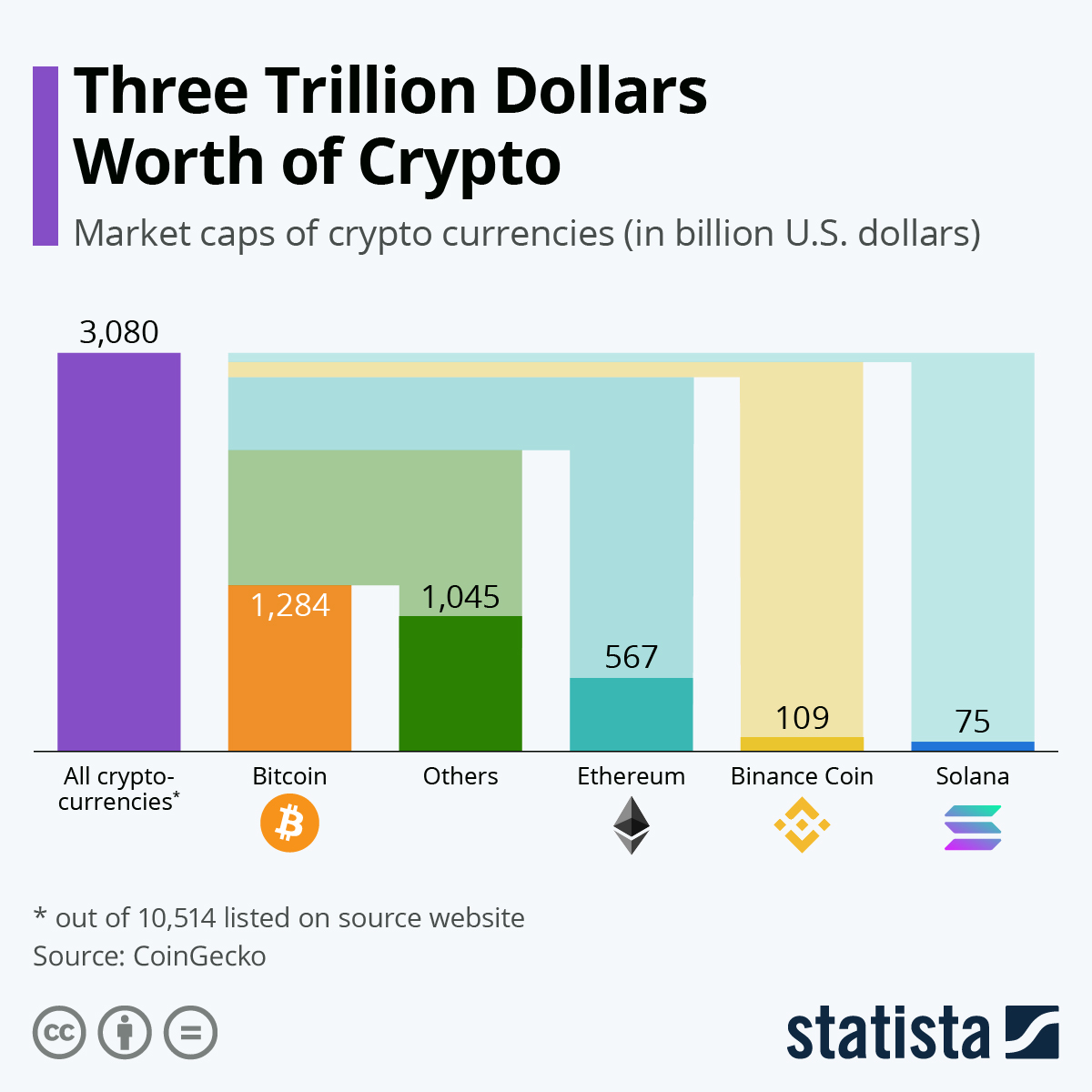Top cryptocurrency
Value is tied to online speculations: On its own, digital currency has no value. Crypto is not bound to anything with inherent physical value, like gold. Its value completely depends on the market—in other words, people’s opinions of how valuable it is or isn’t https://ees-hummer.com/creek-casino-in-michigan/.
Because cryptocurrencies are managed by a network of volunteer contributors known as “nodes” and not by a single intermediary, a system must be in place that ensures everyone participates honestly when recording and adding new data to the blockchain ledger.
Cryptocurrencies use cryptography to secure transactions, maintain data integrity, and control the creation of additional units. When you open your wallet and make a crypto transaction, you are essentially using your private key to generate a digital signature. The network then checks your signature and, if all is good, your transaction is added to a new block.

Cryptocurrency market
What exactly are governments and nonprofits doing to reduce Bitcoin energy consumption? Earlier this year in the U.S., a congressional hearing was held on the topic where politicians and tech figures discussed the future of crypto mining in the U.S, specifically highlighting their concerns regarding fossil fuel consumption. Leaders also discussed the current debate surrounding the coal-to-crypto trend, particularly regarding the number of coal plants in New York and Pennsylvania that are in the process of being repurposed into mining farms.
The Bitcoin market cap is currently 2,066.03 billion. We arrive at this figure by multiplying the price of 1 BTC and the circulating supply of Bitcoin. The Bitcoin price is currently $ 104,298 and its circulating supply is 19.81 million. If we multiply these two numbers, we arrive at a market cap of 2,066.03 billion.
Over the past few decades, consumers have become more curious about their energy consumption and personal effects on climate change. When news stories started swirling regarding the possible negative effects of Bitcoin’s energy consumption, many became concerned about Bitcoin and criticized this energy usage. A report found that each Bitcoin transaction takes 1,173 KW hours of electricity, which can “power the typical American home for six weeks.” Another report calculates that the energy required by Bitcoin annually is more than the annual hourly energy usage of Finland, a country with a population of 5.5 million.

What exactly are governments and nonprofits doing to reduce Bitcoin energy consumption? Earlier this year in the U.S., a congressional hearing was held on the topic where politicians and tech figures discussed the future of crypto mining in the U.S, specifically highlighting their concerns regarding fossil fuel consumption. Leaders also discussed the current debate surrounding the coal-to-crypto trend, particularly regarding the number of coal plants in New York and Pennsylvania that are in the process of being repurposed into mining farms.
The Bitcoin market cap is currently 2,066.03 billion. We arrive at this figure by multiplying the price of 1 BTC and the circulating supply of Bitcoin. The Bitcoin price is currently $ 104,298 and its circulating supply is 19.81 million. If we multiply these two numbers, we arrive at a market cap of 2,066.03 billion.
Cryptocurrency regulation
These agencies are responsible for monitoring and enforcing regulations related to cryptocurrency transactions and investments. They are also responsible for issuing guidance and providing resources to help investors understand the risks associated with investing in cryptocurrencies.
However, overall, the regulatory landscape in Canada is often viewed as stricter than their American cousins. FTX and Binance, for example, both pulled out of the Canadian province of Ontario entirely in 2021 due to onerous regulatory demands.
Cryptocurrency is encompassed in existing money transmission statutes. Ala. Code § 8-7A-2 defines monetary value as “A medium of exchange, including virtual or fiat currencies, whether or not redeemable in money,” and money transmission as “Selling or issuing payment instruments, stored value, or receiving money or monetary value for transmission.” Ala. Code § 8-7A-5 states that “A person may not engage in the business of money transmission” unless they are licensed.